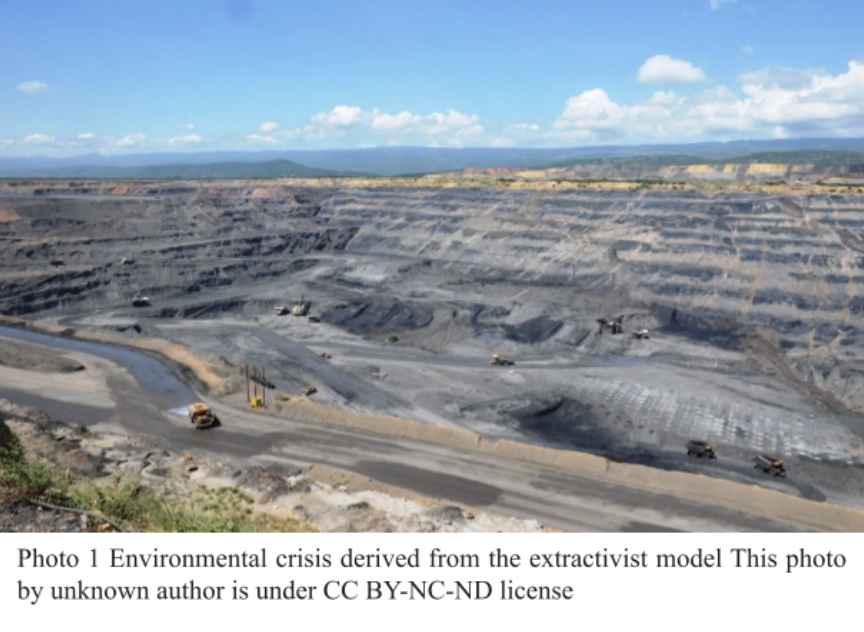[Op-Ed] Peace with Nature
IS IT POSSIBLE TO ADVANCE TOWARDS SCENARIOS OF PEACE WITH NATURE?
MORE IN THIS SECTION
IS IT POSSIBLE TO ADVANCE TOWARDS SCENARIOS OF PEACE WITH NATURE?
Since the end of the 20th century, the voices pointing out the crisis of the extractive development model and the socio-environmental and climatic impacts derived from said model have increased exponentially. Eduardo Gudynas, in 2009 when referring to the economic crisis that began in the United States and that reached Latin America at the dawn of the 21st century, maintains that this crisis is expressed both at a financial and productive level but that it is not only a question of the access to international credit or the problems in locating exports, but that “the essential mechanisms that supported development focused on extracting natural resources and selling them to global markets are faltering.”
However, and in contrast to the analysis carried out by ancestral peoples, academics, some governments and Gudynas, almost all countries have opted and continue to bet on further deepening the extractivist economic strategy, with agribusiness, oil and natural gas sectors, and metals such as gold, aluminum, carbon or half-processed iron. In Latin America, for example, as economic problems progress, competition for exports and the attraction of international capital increases, implementing various strategies.

In the case of hydrocarbons and minerals, in historical moments of falling international prices, the governments of the countries with these resources have generally used two strategies: - An excessive increase in extracted volumes, when the increase in prices occurs in the markets; The resistance to raising environmental demands and inspections, with the fallacious argument that these demands are obstacles to investments.
There are several examples that show in Latin America the prevalence of assuming development as economic growth fueled by the exports of primary goods, be it minerals, hydrocarbons and/or other natural resources.
In Brazil, under the previous government, protection requirements in the Amazon were reduced and although it presents itself as an industrialized economy, it still maintains an export profile where almost half of the products it sells are raw materials. Argentina, (during the time of President Cristina Fernández de Kirchner), vetoed a law that would prevent mining in the glaciers of the Andes. Ecuador has approved regulations such as the Mining Law that encourages trans nationalized production, and is once again betting on the idea of export extractivism as an engine of development. In Colombia, during the government of President Santos, mining was established as one of the locomotives of development.
“A pesar de los generosos recursos de la minería, la agricultura, el sector forestal o la pesca, y los importantes ingresos por sus exportaciones, persisten inequidades sociales. La alta dependencia de la explotación y comercialización de recursos primarios y la desigualdad son dos tendencias históricas en América Latina. Sospechamos que hay un vínculo muy estrecho entre ambos, porque desde el momento en que se vive de los recursos naturales, no se necesita realmente valorar la mano de obra, como sí ocurre en sociedades desarrolladas. No sólo es un tema económico de distribución de riquezas, sino que al haber poca regulación ambiental, los territorios se van degradando, causando graves problemas a la salud y la calidad de vida de las personas”. (DW Hans-Jürgen Bernhardt, politólogo de la Universidad de Kassel y director del Centro de Estudios Latinoamericanos, CALAS).
RELATED CONTENT

Photo 2 Harmony with nature and among beings This photo by unknown author is under CC BY-ND license
DIFFERENT VOICES AT COP 16 POINT OUT THE URGENCY OF THE ECONOMIC TRANSITION AND THE CHANGE OF THE EXTRACTIVIST MATRIX

COP16 is being held in Colombia, it is comforting that several States and dissimilar voices have agreed to address topics that were previously considered forbidden and suspicious. The urgency of the economic transition towards models based on the care of nature, the conservation and sustainable use of biodiversity and the urgency of changing the extractivist matrix towards productive matrices harmonious with nature in key with climate change, biodiversity is highlighted. and the prevention and comprehensive care of risks. and natural disasters.
In an upcoming article, I will share alternatives that pave the way for economic transition and the transformation of the extractivist production model toward paths of peace with nature.







LEAVE A COMMENT:
Join the discussion! Leave a comment.